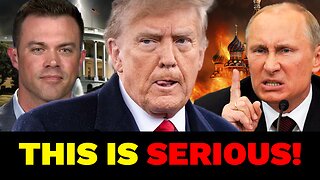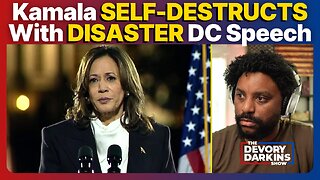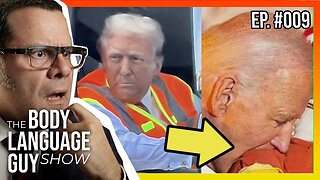DAC- Revolution Unveiled: The Chicago Safety Shift & Minneapolis Crime Chronicles
The unanimous decision by the Chicago Board of Education to discontinue the school resource officer program, thereby removing all Chicago police officers from public schools starting in August, has ignited a crucial conversation about the city's approach to safety and law enforcement. This move, championed by board member Michelle Morales, signifies a commitment to exploring alternative safety systems.
Previously, individual schools held the autonomy to decide on having school resource officers, but this power has been revoked. Currently, only 39 high schools in Chicago have police officers on campus, with varying numbers of SROs. The removal of police officers from schools has triggered a heated debate, not just about the decision itself but also about the impact on students' perception of safety.
In a recent public hearing, stakeholders, including students, faculty, and parents, weighed in on the crucial question of whether the presence of officers makes students feel safer. The discussion reflects the broader discourse on the role of law enforcement in educational institutions and raises concerns about how this decision might impact the overall safety and security of schools.
Despite the discontinuation of the school resource officer program, Chicago Public Schools (CPS) still maintains a substantial force of over 1,400 security officers who are not part of the Police Department. This decision prompts a deeper examination of the efficacy of different security measures in ensuring a safe environment for students.
Tragically, recent events in Chicago, such as the targeted shooting near a school resulting in one teenager killed and two injured, underscore the ongoing challenges of violence in the city. This incident brings into sharp focus the urgency of addressing safety concerns and implementing effective measures to protect students and residents.
In another heartbreaking incident, masked suspects fatally shot Monterio Williams and Robert Boston outside Innovations High School. The Cook County Medical Examiner’s Office confirming their identities shines a spotlight on the pressing need to address safety concerns in Chicago schools comprehensively.
As we navigate through these challenges, the podcast episode takes an unexpected turn, delving into the involvement of individuals like Mark Carter, Isaiah Washington, and Dom Lucre, attempting to turn Chicago red. This adds a layer of complexity to the discussion, intertwining the decisions related to law enforcement with broader political dynamics.
Shifting our attention to Minneapolis, a city grappling with its own set of challenges, the recent string of robberies has raised serious concerns. Four robberies occurring within 18 minutes in the Fifth Precinct, followed by additional incidents including armed robberies and carjackings, highlight the urgency for effective law enforcement strategies.
Minneapolis Police Chief Brian O'Hara's revelation that the suspects in these incidents are young and mostly targeted female victims at gunpoint adds a chilling dimension to the narrative. The pursuit of stolen vehicles, crashes, and injuries further intensify the urgency of addressing juvenile crime and its implications on public safety.
O'Hara's suggestion of potential connections to a previous spree amplifies the complexity of the situation, indicating recurring patterns of criminal behavior. The city, witnessing a significant increase in reported robberies this year, confronts a setback in the progress made in reducing violent crime.
As Da Urban Conservative dives into these narratives, the podcast episode emerges as an exhilarating exploration of the intricate web of decisions, incidents, and political dynamics shaping the urban landscape. Listeners are taken on a rollercoaster of emotions, from the deliberations of the Chicago Board of Education to the streets of Minneapolis, where crime and law enforcement intersect in a high-stakes drama.
In conclusion, this podcast episode provides a multifaceted perspective on urban safety, tackling tough questions about the role of law enforcement, the impact of decisions on communities, and the broader political landscape. It engages listeners with riveting storytelling, leaving them with a deepened understanding of the challenges and complexities faced by cities like Chicago and Minneapolis in navigating the delicate balance between safety, justice, and community dynamics.
-
 LIVE
LIVE
Right Side Broadcasting Network
1 day agoLIVE: President Trump Holds a Rally in Albuquerque, NM - 10/31/24
22,269 watching -
 LIVE
LIVE
Stephen Gardner
13 minutes agoTrump MUST win to salvage US military WARNS Whistleblower!!
256 watching -
 LIVE
LIVE
In The Litter Box w/ Jewels & Catturd
18 hours agoDUMPSTER FIRE | In the Litter Box w/ Jewels & Catturd – Ep. 681 – 10/31/2024
4,375 watching -
 1:34:24
1:34:24
The Quartering
2 hours agoJoe Biden Bites Babies, Trump Epically Trolls Kamala, Joe Rogan Reveals Kamala Bombshell & More
31.6K5 -
 20:11
20:11
DeVory Darkins
1 day agoKamala SELF-DESTRUCTS During DISASTER DC Speech
6.09K33 -
 1:17:23
1:17:23
Russell Brand
3 hours ago“Pfizer KNEW They’d Be KILLING BABIES!” BOMBSHELL Docs Expose Vax, Big Pharma, FDA & Govt - SF482
83K132 -
 1:50:04
1:50:04
vivafrei
4 hours agoAnother Biden Gaffe! Sam Harris is a MORON! White House Falsifying Records AND MORE! Viva Frei
34.8K10 -
 1:12:48
1:12:48
The Body Language Guy
3 hours agoThe Body Language Guy Show #9 - Trump's Garbage TROLLING, Biden Biting... WHAT? and MOAR!
18K10 -
 51:56
51:56
TheAlecLaceShow
6 hours agoBiden Bites Baby Feet | Trump Takes Out The Garbage | Guest: Greg Paul | The Alec Lace Show
20.6K1 -
 16:13
16:13
Degenerate Jay
4 hours ago $0.08 earnedBatman Arkham Knight Is An Amazing Halloween Game
22.4K